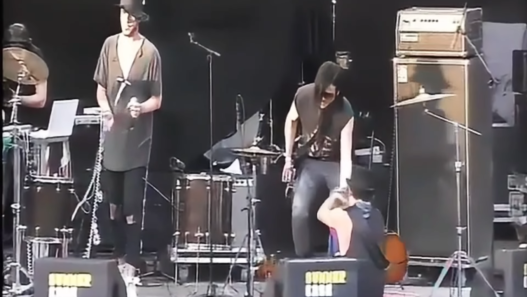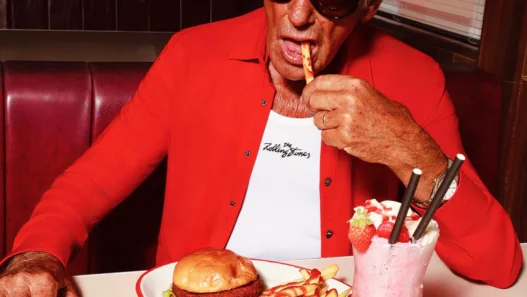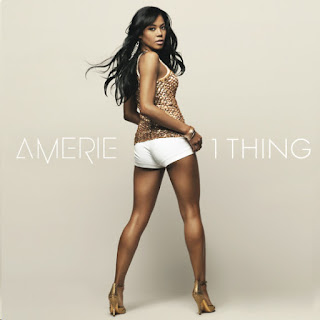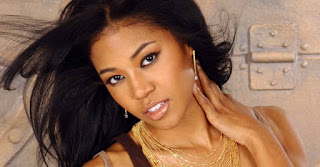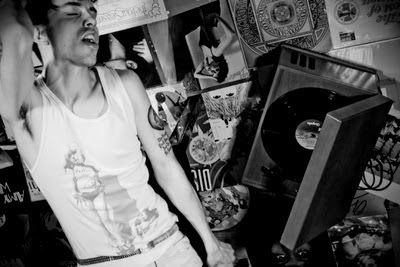Amerie! Amerie! Its the 1 Thing we care about right now…
“By the time Amerie released her last full-length album, In Love & War, in 2009, the singer had already reached several career milestones: The percussive “1 Thing” had hit No. 1 on the Hot R&B/Hip-Hop Songs chart in 2005, and she had landed two top 10 albums on the Billboard 200. But she seemed disillusioned with the music industry soon after.
“I experienced pushback because I’m a female who knows herself and doesn’t have problems speaking up,” she says. After “amicably” parting ways with Def Jam in 2010, she put music mostly on hold, exploring such other ventures as writing fantasy novels and editing a New York Times best-selling anthology of young-adult stories in 2017. She also became a mom in May. Her new career as a mother, along with the state of the industry, in which artists are thriving outside the major-label system, all helped inspire her return to music.
On Friday, the 38-year-old singer will independently release 4AM Mulholland and After 4AM, a “double project” that pivots from her pop-leaning past hits into a deep dive of more subdued, cavernous R&B and trance-laced productions. Mulholland opener “Curious” sets a moody, mysterious tone, followed by snappy, trap-heavy cuts like “A Heart’s for the Breaking” or “4TheLovers”; After 4AM tracks “Give It All Up” and “I Remember Us… ” deliver a pang of nostalgia with flecks of jittery pop and boom bap. The projects read as an artist content in creating in a way that reads and sounds satisfying to her — bucking what listeners may expect from her past music or what traditional trends may dictate.
Speaking to Billboard exclusively ahead of the independent drop, Amerie shares what’s changed since her early days, how her new jobs have affected her work and what she still has to prove almost two decades after her debut.
Your last full-length project was in 2009 with In Love & War. What happened in between then and now?
I was thinking about my next project in 2012 and still making music, but I was writing [books] and wanted to put all my time into writing. I kept thinking I would get to music, but for the most part it was writing and learning story craft. I was living, breathing writing — I wrote six novels in the past [six] years. One is done, two are almost finished, some I’m revising, others are in various states. But I was really missing actively recording, because it gives you a different creative outlet. I’m passionate about writing and story, but it creates a different kind of fatigue.
You recorded these projects while pregnant.
Everything on the album was recorded from when I didn’t know I was pregnant to eight, nine months [along]. “Not a Love Song” and “The Wall” were around then. I was doing little sexy rolls on those tracks. [Laughs] I record, engineer and do my own vocals and rough mixes. It was really creatively freeing.
How did the idea of a double album come about in 4AM Mulholland and After 4AM?
I love my projects to be very sonically cohesive. As I was recording, I wasn’t trying to limit myself in any way, I was feeling very, very creative — I had just came off of writing a new story and I wanted to go full-out into the recording process. I didn’t want the album to be a smorgasbord of sound, it needs to have a vibe and that’s why there’s two projects.
I’m hearing a lot of darker and moodier vibes from you on this project.
The funny thing to me, I’ve always felt like my music is dark — even when no one else thinks that. Like with “Why Don’t We Fall in Love,” I got on the video with the director and he’s like, “OK, I’m thinking summertime, you on a beach,” and I go, “OK, this is cool, but actually my initial thought was black, red and a highway.” No one else seems to feel that.
Do you have synesthesia?
Pharrell and I actually talked about synesthesia before. I wasn’t sure if I had it or have it, but I have connections to color — everything has a color. Do I literally see color? No, but I feel its presence really strongly, so much so even when I’m using ProTools, everything has its color and that’s what Pharrell and I were specifically talking about. If someone throws another track on top of the track I’m working on, the colors change — sometimes I can’t even look at the screen because the vibe has changed so much. But the people around me have color, my clothes, I am really sensitive to color. I don’t know if that’s synesthesia in technical, psychological terms or if it’s a little bit of that and a dose of my OCD in there.
How does writing books influence your music?
Writing a lot helped a lot with my songwriting — it helped me write a lot faster, it allowed me to be a lot more concise and specific with what I wanted to say.
The landscape has dramatically changed from your start to today. What’s releasing music like today versus back then?
I always found it hard with the old model. Recording music, getting together with the label, putting together a marketing plan, then you shoot the videos. Everything’s so far in advance. I always felt that once I finished the recording process and it was done, I was over it.
It seems like the industry finally caught up with your mind-set.
There are some negatives, of course, but the speed at which everyone’s listening to things and digesting things, it allows a singer — especially if you’re independent — to get it off your chest and go to the next thing. You don’t feel like something’s slowing you down. That’s all I want to do — I just want to create. That’s probably why it’s been so hard for people to write [songs] for me. I write for myself, other than the few times where it’s been someone I jibed with, like Rich [Harrison, for “1 Thing” and “Talkin’ About”]. But as much as I love Rich, I don’t know how much he could write for me now either. People have sent songs to me throughout my whole career and it never comes out right. Before, I felt the resistance — the “shut up and be pretty and sing” thing. It was never explicitly stated for me, but I definitely felt that.
It’s not that I didn’t want to take songs that were written because I’m trying to be difficult — which honestly as an artist it’s perfectly my right to not do that — but for me, the whole reason I do this is not to be cute and sing other people’s songs. I don’t do this for the photo shoots or the parties or the red carpets — I never liked those. All those things were the necessary evils that came with having a career in which you could create music. The amazing thing to me was creating music, writing a song and making tangible something that was intangible.
What do you want people to know Amerie is capable of?
Anything and everything. The whole reason why I do what I do — whether it’s writing fiction or recording the songs — it has everything to do with getting something that’s inside [of me] out. It’s like a pressure; like a teapot and I need to release the pressure. I really feel it, almost as a physical thing and it can keep me up and make me anxious — I’ve got to get it out.” – Billboard.com



